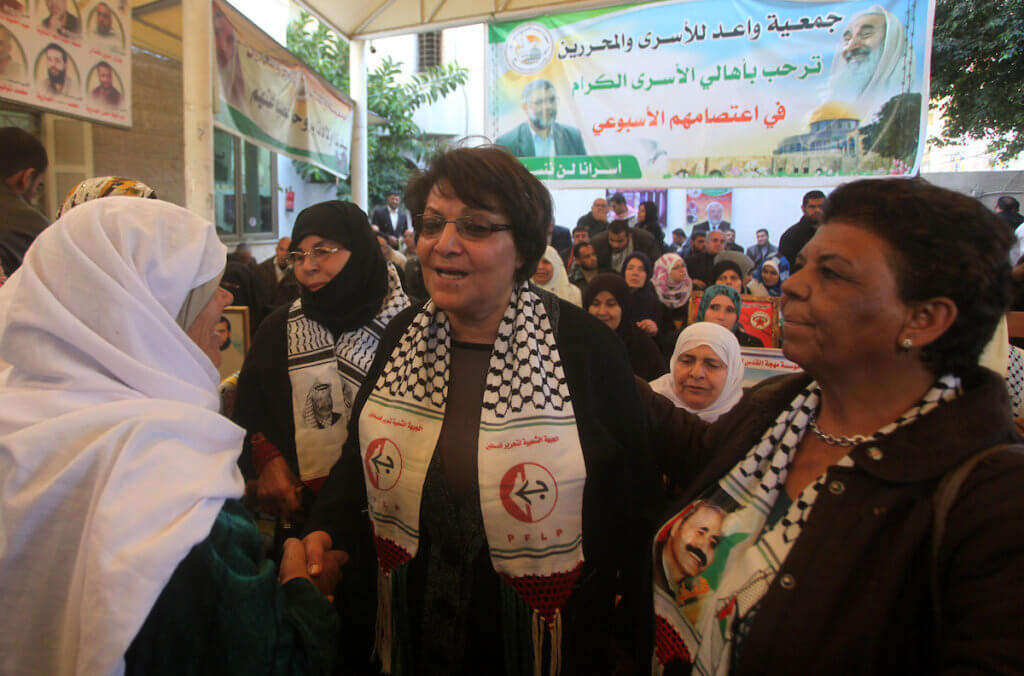In September, the videoconferencing program Zoom denied its services for an online panel that featured Popular Front for the Liberation of Palestine (PFLP) member Leila Khaled.
The open classroom event was sponsored by San Francisco State University’s (SFSU) Arab and Muslim Ethnicities and Diasporas Studies Program and the Women and Gender Studies Department.
Zoom claimed that they canceled the event to comply with United States anti-terrorism laws. Khaled was connected to two hijackings (in 1969 and 1970), but she never killed anyone. “Zoom is committed to supporting the open exchange of ideas and conversations, subject to certain limitations contained in our Terms of Service, including those related to user compliance with applicable U.S. export control, sanctions, and anti-terrorism laws,” it said in a statement. “In light of the speaker’s reported affiliation or membership in a U.S. designated foreign terrorist organization, and SFSU’s inability to confirm otherwise, we determined the meeting is in violation of Zoom’s Terms of Service and told SFSU they may not use Zoom for this particular event.”
Shortly after Zoom announced its decision, Facebook removed the panel’s event page for the webinar. The organizers attempted to have the talk on YouTube, but that platform cut the stream 20 minutes into the event and claimed that it violated their terms of service.
On October 9, participants from an open classroom on the Sabra and Shatila massacre released a statement condemning Zoom’s decision and calling on SFSU to stand up for academic freedom. The classroom participants included Dr. Rabab Abdulhadi, who is a professor at SFSU, and Ellen Siegel, a survivor of the Sabra and Shatilla Massacre.
“We recall that it was the suppression of the voices of the uprooted and displaced Palestinians that led Palestinians including Leila Khaled to such a drastic action of hijacking planes in 1969 to bring to the world attention the injustices her people suffered and continue to be suffering today,” reads the group’s statement. “Neither Zoom nor SFSU must be allowed to block the voices of people suffering gross injustices from being heard. Shutting down free speech is a crime against justice.”
The statement corresponds with a petition, compiled by concerned professors and students, demanding that SFSU hold a rescheduled event and renew their commitment to defending academic freedom. “The university’s shared governance guarantees that course content must be under the purview of faculty,” it reads. “That is a major element of academic freedom. Whatever forces were at play at Zoom, their action served a specific political and ideological mission: shutting down support for and debate over Palestinian freedom and criticism of Israel’s colonial rule over Palestine on university campuses and beyond.”
The California Faculty Association (CFA) has also released a resolution on the issue, along with a letter to SFSU President Lynn Mahoney that calls on her to revise the school’s agreement with Zoom.
Dr. Rabab Abdulhadi told Mondoweiss that continued public pressure on Zoom was crucial, despite the fact that the event has already occurred. “It is essential that we demand that SFSU, and all our academic and non-academic institutions’ accountable for Zoom’s censorship of our open classroom webinar,” she said. “Zoom should not be allowed to interfere with nor have any power over the content of our curriculum and classrooms. This has implications for everyone who has become dependent on private tech corporations, especially in the age of COVID-19 pandemic.”
These sentiments were echoed by the Palestine Feminist Working Group. “As we increasingly rely on digital platforms to engage broader publics, and especially as the space for face-to-face engagement has narrowed in the wake of COVID-19, we know that this kind of suppression will be weaponized to silence any and all marginalized communities using digital spaces to voice opposition to the oppressive systems under which we live,” their statement reads. “While we are acutely aware of the systemic logics of racism inherent in digital technologies for racialized communities, digital platforms also produce opportunities of sociality in the face of erasure. If digital platforms continue to have the power to dictate the terms of the conversation, and if we continue to have to ask for permission from massive technology conglomerates to share our vital histories, we can only expect a further restriction of what Palestinian scholar Edward Said called ‘permission to narrate.'”


